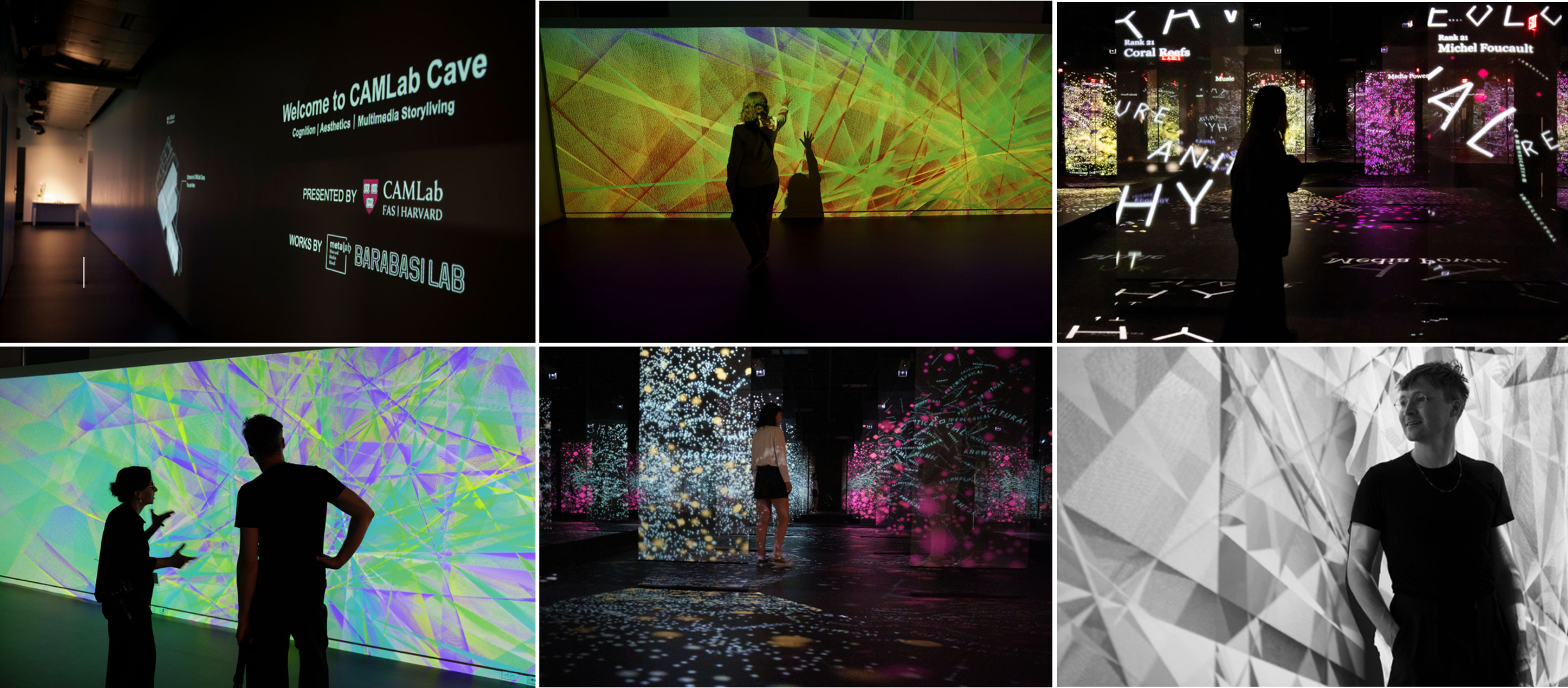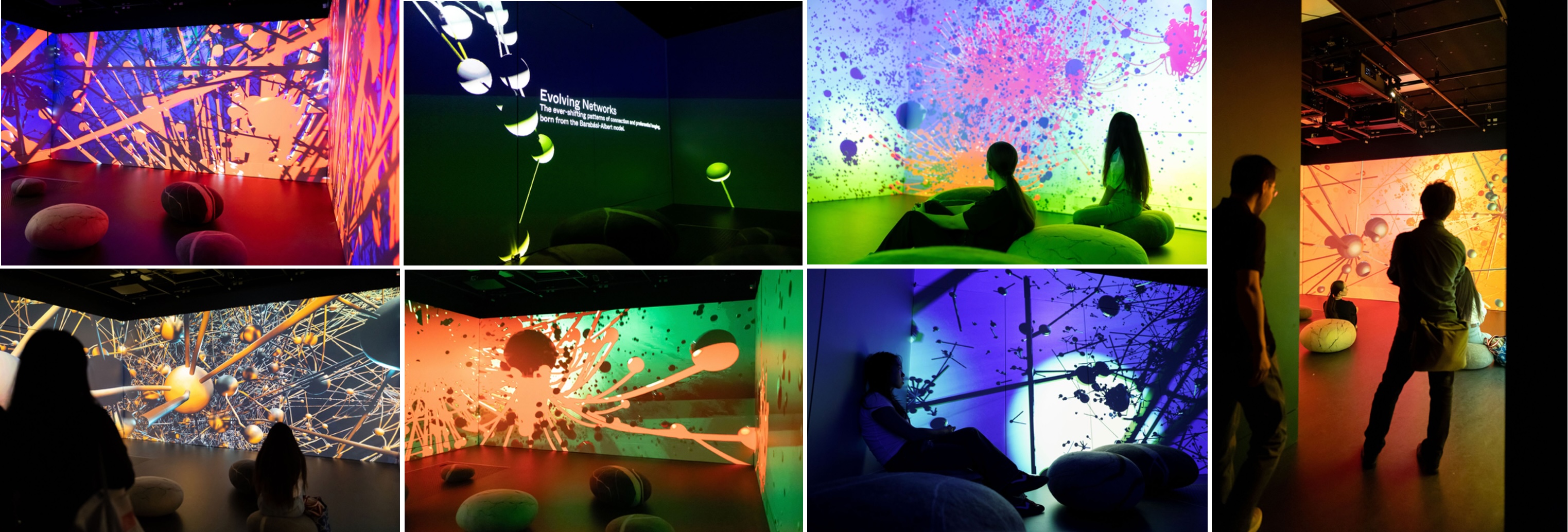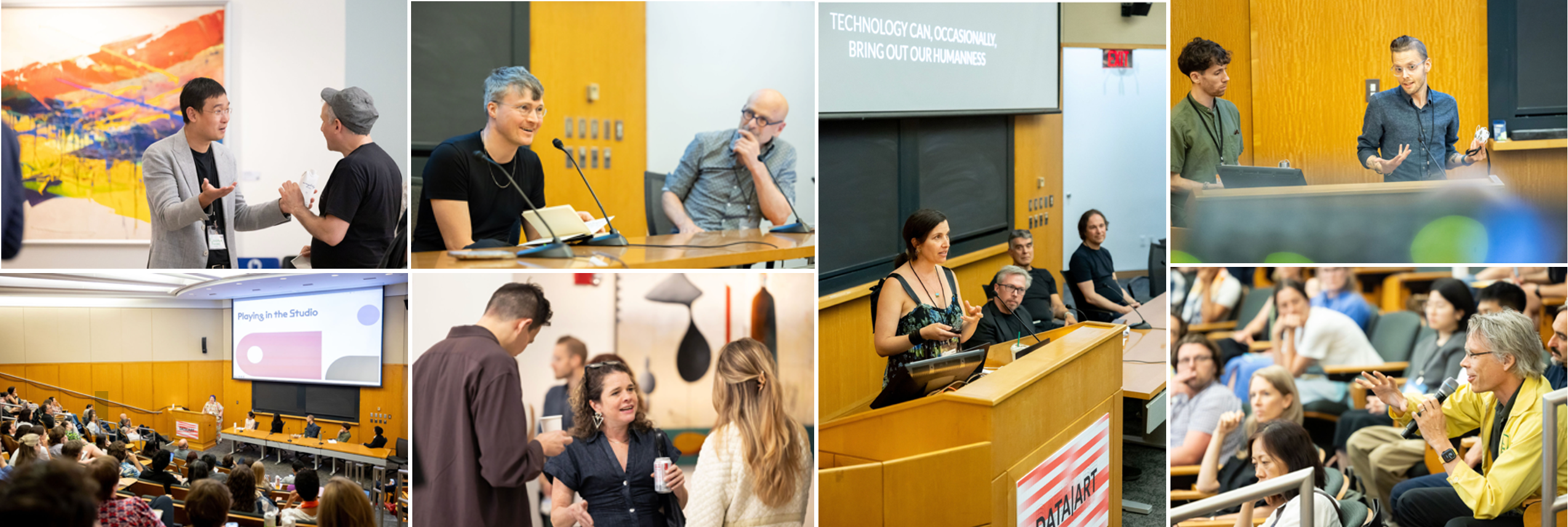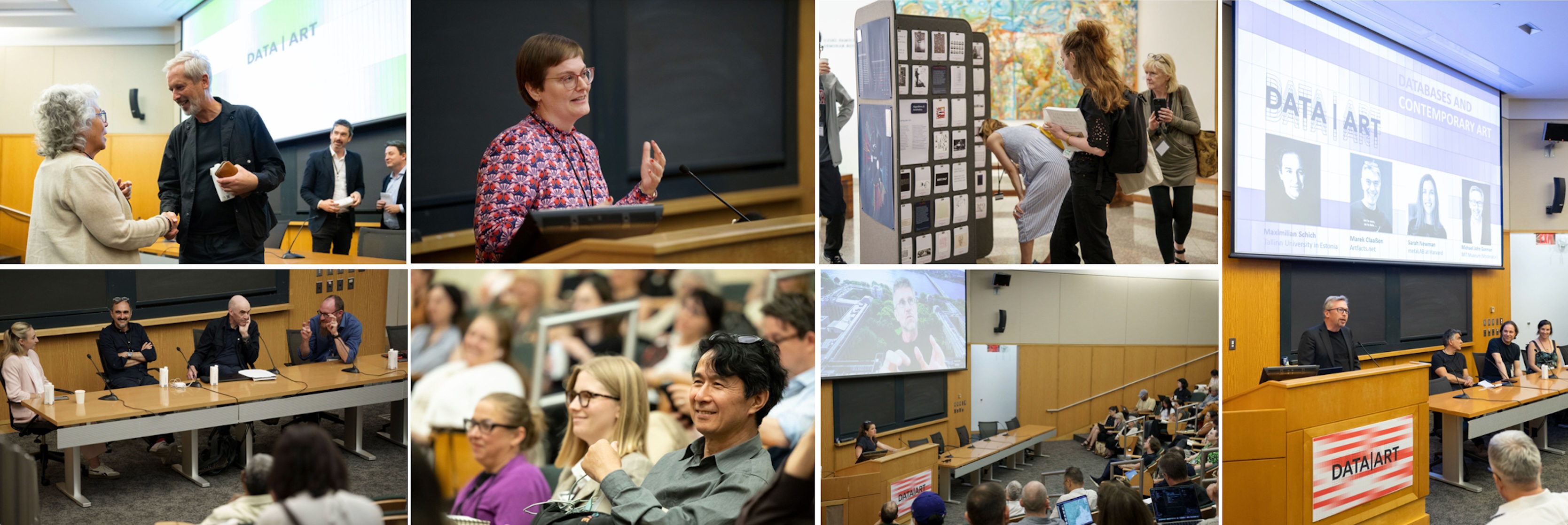The Barabási Lab (Center for Complex Network Research at Northeastern University) and metaLAB (at) Harvard, Berlin & Basel, co-hosted a dialogue between data science and art. The Data | Art Symposium, held June 11-12, 2025, “represents one of the first events of its kind” says Jeffrey Schnapp, founder of metaLAB (at) Harvard, “bringing together artists, curators, technologists, designers, and scientists whose work involves the critical and creative crafting of the defining material of our digital age: data.” The event brought together an interdisciplinary community to examine the complex relationships between data and creative expression, exploring how data functions not merely as a tool for representation, but as an active force in shaping reality itself.

Beyond Visualization: Data as Creative Medium
The symposium challenged conventional approaches to data visualization by positioning data within broader humanities and critical frameworks. As algorithmic systems increasingly influence information design, the event emphasized the vital importance of maintaining connections to artistic and humanistic inquiry.
“Data is often called the oil of the 21st century. But unlike oil, data is not a natural resource—it is shaped, performed, and designed.”, according to Kim Albrecht, Principal at metaLAB (at) Harvard & Berlin, “We design data, and data designs us. As a cultural artifact, it must be framed, questioned, and reimagined. Art, as a reflective and critical domain, is uniquely equipped to do this work. That’s why a symposium—and a movement—around data | art is not only timely but necessary.”

Central questions emerged throughout the event: How does data shape the institutions, disciplines, and lived realities that surround us? What new artistic and institutional strategies are developing in response to data's pervasive influence? And perhaps most provocatively, how can we engage with data not just analytically, but artistically, critically, poetically, and politically?
A Platform for Cross-Disciplinary Exchange
The symposium's format—featuring speaker panels, PechaKucha presentations, an online lecture and an immersive digital exhibit at the CAMLab Cave—created multiple spaces for meaningful exchange. Participants explored the material, visual, political, and poetic dimensions of data in contemporary art and curatorial strategies, examining how data collection, interpretation, and mobilization influence everything from individual narratives to institutional structures.

"One of the most surprising outcome of this event is the genuine feeling that this was long overdue—says Professor Albert-László Barabási—that there is a community meaningfully engaged with data and art, which has been looking for a platform to engage with each other. This event offered the first such platform, and I hope it is the beginning of a longer common journey for the community."
The event's online lecture by renowned information design expert Edward Tufte provided a fitting culmination to discussions about visual interpretation and engagement with the information landscape.
Institutional Vision
The symposium reflected the distinct missions of its hosting organizations. The Barabási Lab, under Professor Barabási's leadership, continues pushing boundaries in network science across medicine, art, and scientific discovery. Meanwhile, metaLAB operates as an "idea foundry" and "knowledge-design lab," experimenting at the intersection of networked arts and humanities across its locations at Harvard, Freie Universität Berlin, and the Academy of Arts and Design Basel.

By bringing together diverse perspectives on data's role in contemporary culture, the the Data | Art Symposium modeled new approaches to interdisciplinary collaboration and knowledge production. As data continues to permeate every aspect of contemporary life, symposiums like Data | Art demonstrate the essential value of maintaining dialogue between scientific, artistic, and humanistic approaches to understanding our increasingly networked world.




